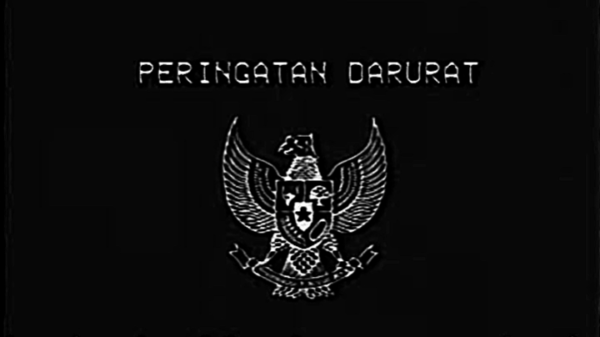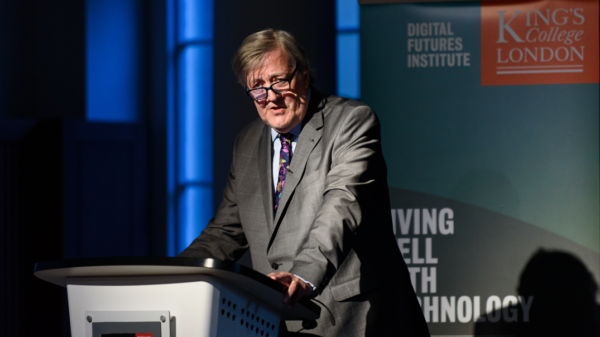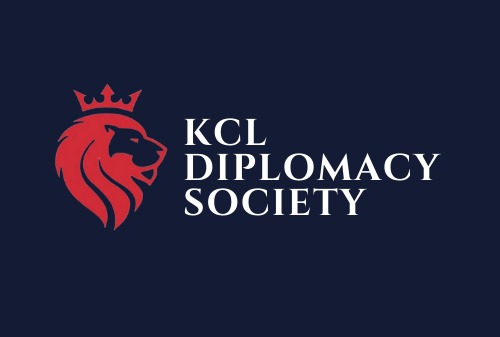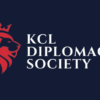Staff writer Anastasia Broder reflects on her experience at AI UK 2025, exploring the conference’s bold visions for AI’s future while finding meaning in the quiet, awkward moments that remind us what it means to be human.
I have a love-hate relationship with ChatGPT. The relief of outsourcing a menial task — like drafting a follow-up email — vanishes almost instantly, replaced by a gnawing sense of incompetence. Is this cheating? Am I losing whatever little intelligence I’ve gained in 27 years? How is this chatbot better at almost everything than me? And then comes the existential gut punch: AI is definitely replacing me.
Thankfully, I am not alone in these thoughts.
By now, it is almost a truism that artificial intelligence (AI) is revolutionising life as we know it — and will continue to do so for years to come. Its impact is so transformative, and progress so rapid, that some predict 2025 may be our last ‘normal’ year.
Yet, most people remain largely unaware of how AI is currently being used across industries and where it is headed. So when the opportunity arose to attend and cover the AI UK 2025 conference hosted by the Alan Turing Institute, I couldn’t say no.
The future of AI in the UK
Since its inception in 2021, the AI UK conference has showcased the latest innovations in AI and data science, while fostering thought-provoking conversations on ethics, challenges, and opportunities associated with the AI field.
Held over two days at the Queen Elizabeth II Centre, AI UK 2025 featured leading professionals in the field, including: Lord Darzi, Executive Chair of The Fleming Centre Initiative; Feryal Clark, Parliamentary Under-Secretary of State at the Department for Science, Innovation and Technology; and Alex van Someren, Chief Scientific Adviser for National Security for the UK Government.
In early 2025, the UK government pledged to make Britain the world leader in AI. The UK’s potential to lead the industry’s advancements due to the country’s proven track record of computer innovation, large venture capital market, and a strong civil society, was echoed in the opening session.
Feryal Clark, the keynote speaker, highlighted that it is “crucial to get this right and make AI work for all, not just the lucky few.”

AI in Healthcare
AI is already delivering incredible benefits to our society. During a session on Harnessing AI with Clinical Ingenuity, Dr Maaike Kusters shared how an AI-powered conversational system has eliminated the need for doctors to take notes during some patient meetings at her hospital. The system records doctor-patient conversations, extracts relevant clinical data, and transcribes it directly into the patient’s file. Freed from the burden of note-taking, doctors can be more present and engaged, maintaining eye contact and building trust with patients. In a way, AI is helping them be more human, enhancing human connection.
Of course, the use of AI in healthcare comes with significant limitations, risks, and challenges, as discussed by the speakers. The NHS’s digital maturity is patchy – while some areas are advanced, others still rely on legacy systems or even paper records, making AI adoption impractical, or even impossible in certain cases.
Cybersecurity is another critical concern that must be addressed before AI can be scaled across the sector. Protecting personal and confidential data is fundamental to patient care, and as AI use expands so does the risk of cyber threats. Thus, strengthening cyber resilience of the NHS is essential before AI initiatives can be deployed more widely.
The importance of cybersecurity in an AI-drive world extends beyond healthcare. Panelists in the Creating an Immune System for Critical National Infrastructure session identified cyber attacks from hostile actors as the key risk to UK’s critical infrastructure. However, they have also highlighted that AI can be part of the solution – it can be leveraged to enhance cyber resilience through threat-led intelligence and safeguard vital systems.
The Future of Warfare
Human oversight and ethics were key topics in the Future of Warfare in the AI Age session. Speakers debated whether meaningful human control could coexist with AI advancements and whether the defense sector is affected by “anyone but us” fallacy – the belief that professionals in a given field are indispensable and not at risk of AI replacement.
At first glance human oversight may seem like a no-brainer, but it is important to acknowledge that our decision-making is often influenced by bias, emotion, and heuristics, which can prevent us from making logical and optimised choices. This is especially true in the context of war, where stakes are high, and the sheer volume of information can be overwhelming.
Currently, military decisions are evaluated against benchmarks of humanity, lawfulness, and proportionality. However, if AI can assess these factors more accurately, it raises an ethical question: would it be wrong not to entrust decision-making to AI? In the absence of trust in the defense industry and AI algorithms, this may be an uncomfortable prospect for many.
The Unbearable Lightness of Being
Moving between floors to catch the next talk is made slightly more complicated by the lift stopping at every level. Packed together like sardines, we patiently watch the doors open and close for no reason. Eyes fixed on our phones, our lanyards, or the floor, we all pretend the silence isn’t awkward — which, of course, makes it even worse. And now, for no reason at all, I feel like I’m about to burst into laughter. Great. Now I’m hyper-aware of my breathing.
At our third stop, someone finally breaks the silence — “Well, so much for AI optimisation” — and we all laugh, a grateful, collective release from the self-importance imposed by our imperfect, irrational brains. The doors open, and we scatter, the past few minutes becoming a minor footnote in the day. Yet I can’t shake the feeling that whatever just happened matters — somehow essential, somehow perfectly in tune with everything this day is about.
For the rest of the day, amid grand visions of optimisation and logic, I find myself anchored to the delightful awkwardness of elevator small talk; the quiet reminder of what it means to be human.



















